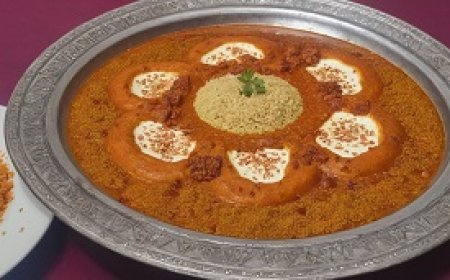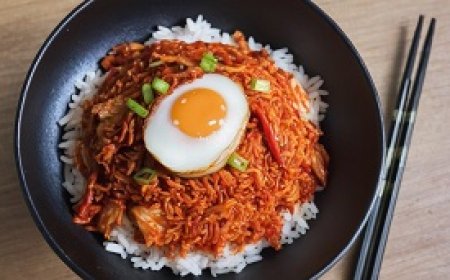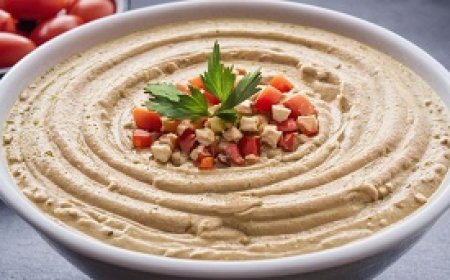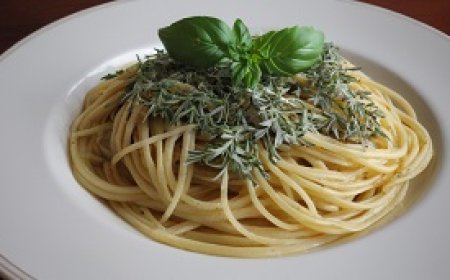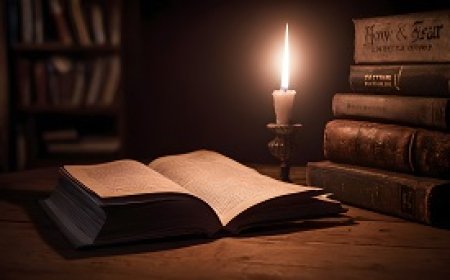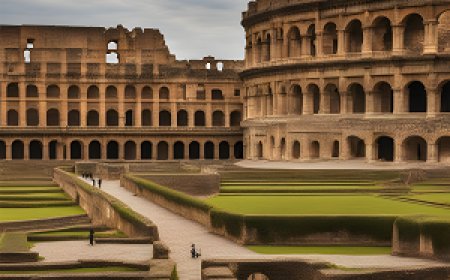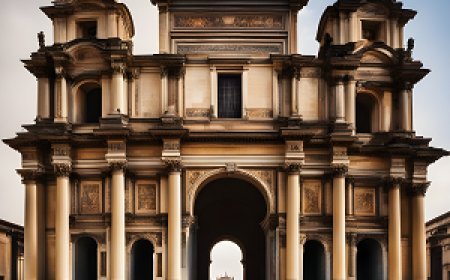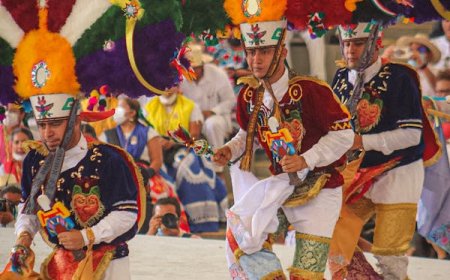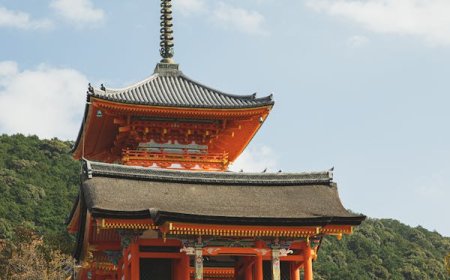The traditional rituals in Kenya
The traditional rituals in Kenya are an essential part of the country's cultural identity, reflecting a deep heritage that blends customs, traditions, and values spanning several centuries. These rituals vary according to tribe and region, encompassing a wide range of activities related to agricultural seasons, religious times, and social celebrations. Through vibrant musical performances and unique dances, the Kenyan people express their joy and celebration of various occasions, with these rituals serving as a means to strengthen social bonds and foster a sense of belonging to the community. Preserving these traditional rituals is important for Kenyans, as they provide them with a sense of identity and belonging, while also contributing to enhancing understanding and peaceful coexistence among the different components of Kenyan society.
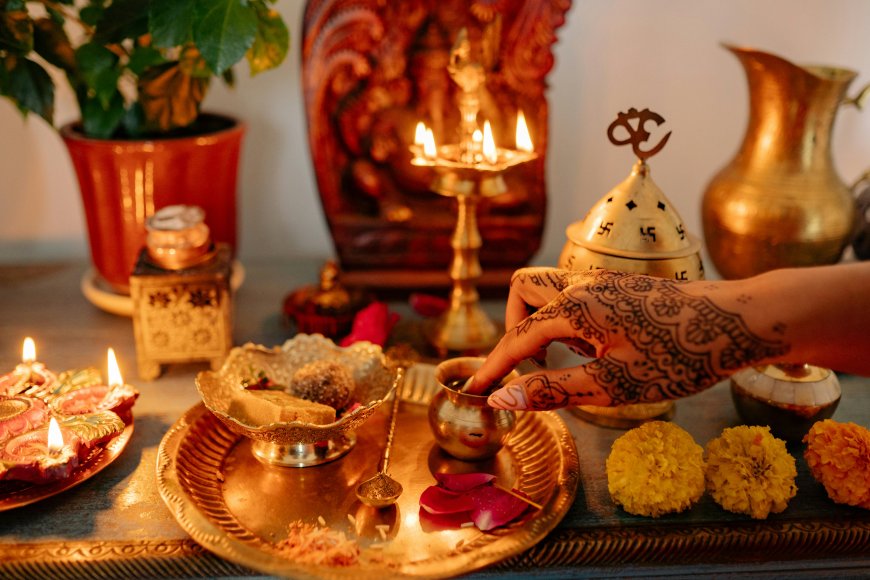
The traditional rituals in Kenya are an essential part of the country's cultural identity, reflecting a deep heritage that blends customs, traditions, and values spanning several centuries. These rituals vary according to tribe and region, encompassing a wide range of activities related to agricultural seasons, religious times, and social celebrations. Through vibrant musical performances and unique dances, the Kenyan people express their joy and celebration of various occasions, with these rituals serving as a means to strengthen social bonds and foster a sense of belonging to the community. Preserving these traditional rituals is important for Kenyans, as they provide them with a sense of identity and belonging, while also contributing to enhancing understanding and peaceful coexistence among the different components of Kenyan society.
The traditional rituals in Kenya
The traditional rituals in Kenya are an integral part of their rich culture and deep-rooted history. These rituals manifest in a variety of activities and traditions that reflect their diverse and rich heritage. Traditional Kenyan rituals serve as a means for the Kenyan people to express their identity, traditions, and embody many of the values and beliefs passed down through generations.
These rituals encompass a wide range of activities, from religious and social celebrations to daily practices. Each tribe in Kenya is characterized by its own rituals and traditions, making Kenyan culture diverse and colorful.
Among the most important traditional rituals in Kenya are celebrations of agricultural seasons, where people celebrate crops and express gratitude to God for food and sustenance. Religious rituals also include celebrations of religious occasions such as Eid al-Fitr, Christmas, and others, where people gather for prayers, songs, and festivities.
Traditional dances are an important part of rituals in Kenya, where people perform distinctive dances that express their feelings, joys, and sorrows. Social rituals also include various activities such as weddings and celebrations of special occasions.
The Kenyan people are keen on preserving these traditional rituals by passing them down from generation to generation, teaching the younger generations their value and importance in building and strengthening the community. Kenya's traditional rituals are an integral part of Kenyan national identity and represent a source of pride and admiration for the Kenyan people.
Cultural Diversity
Cultural diversity in Kenya is one of its distinctive features, with traditional rituals varying from one region to another and from one tribe to another, reflecting the richness and multiplicity of Kenyan culture.
Kenya is home to more than 40 different tribes, each preserving its own rituals and traditions. For example, the Luo tribe is renowned for its beautiful and diverse dances, such as the "Masai" dance, which is considered a symbol of the tribe's culture, while the Kikuyu tribe is known for its religious rituals and agricultural celebrations.
Traditional rituals in Kenya vary depending on the occasion or event. For instance, weddings are considered one of the most important rituals in Kenyan culture, with wedding customs differing from one tribe to another and including ceremonies and celebrations that may last for several days.
Additionally, religious rituals in Kenya reflect cultural diversity, as Kenyans practice various religions such as Christianity, Islam, Hinduism, and indigenous African religious traditions, each preserving its own rituals and ceremonies.
These traditional Kenyan rituals are an integral part of the country's national identity, promoting communication and peaceful coexistence among the diverse members of society, and contributing to mutual understanding and respect for cultural diversity in Kenya.
The Importance of Religious Rituals
The importance of religious rituals in Kenya is evident in enhancing both the cultural and spiritual belonging of individuals and the community at large. These rituals constitute an essential part of the country's traditional cultural heritage, representing significant aspects of worship practices, communication with the divine, and the promotion of ethical and social values.
From Christian rituals practiced in churches and temples to Islamic prayers held in mosques, these rituals span generations and foster spiritual and social connections among community members.
Religious rituals in Kenya are seen as a means to promote solidarity and cooperation among community members, as people feel a sense of connection with the divine and exchange goodwill and love during the practice of these rituals. They provide individuals with a moral framework that reinforces human values and guides their behavior in accordance with the requirements of religion and society.
Furthermore, religious rituals play a significant role in promoting social stability and achieving internal peace, serving as a focal point for harmony and peaceful coexistence among different religions in Kenya.
In this way, the importance of religious rituals in Kenya lies in enhancing the cultural and spiritual identity of the community, providing a framework for spiritual and social communication, and promoting peaceful coexistence and social stability in the country.
Traditional Dances
Traditional dances in Kenya are an essential part of Kenya's traditional rituals and express the diversity and richness of Kenyan culture. These dances are characterized by their diversity, aesthetics, and expression of various aspects of daily life, tribal traditions, and religious practices.
Traditional dances in Kenya vary according to the tribe and region, with some dances expressing agricultural rituals, others celebrating holidays and social occasions, and others representing national pride and cultural identity.
Among the famous traditional dances in Kenya is the "Maasai" dance, which reflects the culture and traditions of the Maasai tribe. This dance is characterized by unique and coordinated movements that express the strength and bravery of Maasai warriors and are considered a symbol of the tribe's identity and cultural heritage.
Other well-known dances include the "Taarab" dance, representing joy and celebration of agricultural seasons, the "Kugo" dance, expressing social unity and solidarity, and the "Kiganda" dance, representing love and romance.
Traditional dances in Kenya serve as a means of artistic and cultural expression, enhancing social bonds and understanding among community members. They also serve as a way to document cultural heritage and pass it on to future generations, fostering pride and belonging to Kenyan identity.
Annual Celebrations
Annual celebrations in Kenya are an important part of Kenya's traditional rituals, providing an opportunity to express joy, social cohesion, and the cultural identity of the Kenyan people.
Annual celebrations in Kenya vary according to tribe and region, often linked to specific seasons or religious and agricultural occasions. One of the most important celebrations in Kenya is the "Mashujaa Day," an annual celebration held in the city of Lamu, featuring traditional dances, cultural competitions, and social events, attracting thousands of tourists and participants from inside and outside the country.
Kenya is also known for many religious celebrations such as Christmas, Easter, and Eid al-Adha, where streets and homes are adorned with lights and decorations, and families and friends gather to celebrate together, exchange greetings, and gifts.
Additionally, Kenya hosts many other cultural celebrations such as arts and culture festivals and handicraft exhibitions, reflecting the country's cultural diversity and richness.
These annual celebrations in Kenya serve as a means of expressing cultural and traditional identity, promoting communication and peaceful coexistence among different cultures and religions in the country. They also provide an opportunity to strengthen social bonds and enhance joy and solidarity among community members.
The Role of Rituals in Preserving Heritage
The role of rituals in preserving heritage in Kenya is vital and fundamental for maintaining the country's cultural identity and history. Traditional rituals in Kenya are an integral part of cultural heritage, representing a range of practices and ceremonies passed down through generations.
First and foremost, rituals serve as a means of transmitting knowledge and values from one generation to another. Through participation in traditional rituals, young individuals learn about the history and culture of their country, inheriting important values and traditions. Children and youth are taught stories of myths and folklore during these rituals, strengthening social ties across different generations.
Secondly, traditional Kenyan rituals contribute to preserving both urban and rural heritage. By engaging in traditional rituals that vary among tribes and rural communities, people maintain traditional methods of farming, fishing, handicrafts, cooking, and other skills that distinguish their heritage.
Thirdly, rituals promote a sense of belonging and cultural identity. Individuals feel pride and connection to their community and heritage when participating in traditional cultural rituals. This fosters national spirit and deepens attachment to Kenyan national identity.
Finally, rituals form part of the tourist experience and are considered an important cultural legacy for preserving Kenyan heritage. By attracting visitors and tourists to observe and participate in traditional rituals, efforts are made to preserve and enhance this heritage.
In these ways, traditional Kenyan rituals play a vital role in preserving cultural heritage and enhancing attachment to the country's cultural identity.
Summary
The traditional rituals in Kenya are the essence of the country's cultural identity, representing a deep heritage that encompasses a variety of practices and ceremonies. This cultural heritage varies among tribes and regions, including numerous social, religious, and cultural activities. By participating in these captivating rituals, Kenyans express their connection to their heritage and strengthen their social bonds, thus promoting cultural communication and peaceful coexistence. Understanding and respecting these ancient rituals contribute to preserving and enhancing Kenya's cultural heritage for future generations.
Sources
1. Traditional Kenyan Wedding Rituals and Customs - This article provides an overview of the traditional rituals and customs observed during weddings in Kenya. It offers a comprehensive look into the various rituals and traditions followed during this significant occasion.
2. Kenyan Culture: 10 Things You Need to Know - This article gives an overview of Kenyan culture, including traditional rituals. It highlights several customs and traditions that are integral to the daily lives of the people in Kenya.
3. Traditional African Clothing in Kenya - This article discusses traditional clothing in Kenya and how it is passed down through generations. It sheds light on the colors and patterns that reflect the traditions and cultural values of the Kenyan society.
What's Your Reaction?



























